Given the colder-than-average summer weather we’re experiencing here in the UK at the moment, it may be difficult to envisage how skin-related sun damage could be a threat…
The effects of UV damage can strike even when the sun isn’t out in all its glory and actually knowing how to protect your skin can cause a conundrum. With this in mind, here are a few legitimate, non-surgical, and non-invasive examples of how to protect yourself against UV damage this summer.
Heliocare supplements
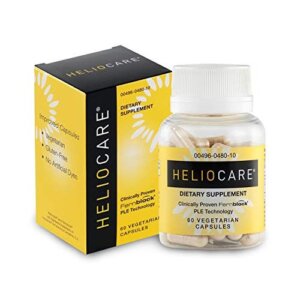
Heliocare supplements contain Polypodium leucotomies, extracted from a tropical fern native to North and South America. The supplements contain antioxidants and compounds which have been proven to protect against sun damage caused by inflammation and Heliocare themselves have been endorsed in more than 50 studies.
Recent Roland Garros winner Rafael Nadal recently announced he would be helping to publicise Helicare’s expert advice and proposals for healthy sun exposure, having grown up in Spain and trained in extreme heat and sun.
Nicotinadmide (AKA Vitamin B3)
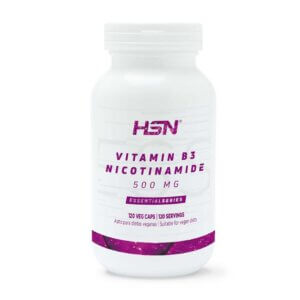
Nicotinamide, also known as Vitamin B3, has garnered significant attention for its protective effects against skin cancer and UV damage. A controlled trial conducted in Australia demonstrated that Nicotinamide significantly reduced the presence of precancerous cells, showcasing its protective capabilities against ultraviolet (UV) radiation.
This form of vitamin B3 plays a crucial role in maintaining cellular health by enhancing DNA repair mechanisms in UV-damaged skin. Additionally, oral supplements of Nicotinamide have been shown to benefit kidney health and assist in the management of type 1 diabetes by supporting overall cellular function and reducing inflammation.
Beyond its dermatological benefits, Vitamin B3 is essential for overall well-being. It contributes to the proper functioning of the digestive system, skin, and nerves, and is also involved in converting food into energy. Given its wide-ranging benefits, incorporating Nicotinamide into your skincare and dietary regimen can support both skin health and general physiological functions.
Green Tea
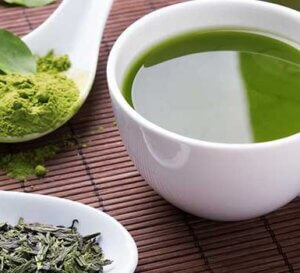
Switching from your regular cup of builder’s tea to green tea can significantly enhance your skin’s protection against UV damage. Green tea, along with blueberries, strawberries, and apples, contains high levels of catechins, powerful antioxidants that combat the harmful effects of UV radiation. The richer the color of the green tea, the higher its catechin content, making it more effective in protecting the skin.
Catechins work by neutralizing free radicals, reducing inflammation, and protecting skin cells from oxidative stress. Other foods known to bolster the skin’s defense against damage include tomatoes, watermelon, and wild salmon, all rich in antioxidants and essential nutrients. Regular consumption of these foods can help maintain a healthy, resilient complexion.
Applying Sunscreen
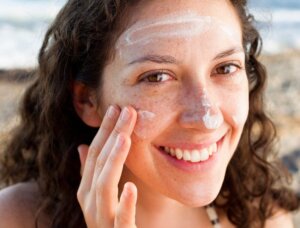
While applying sunscreen might seem straightforward, choosing the most effective one can be challenging. ZO Skin Health’s SPF 50 sunscreen offers broad-spectrum protection against both UVA and UVB rays.
In addition to preventing sunburn and sunspots, this sunscreen is designed to withstand water and sweat. However, it’s crucial to re-apply sunscreen immediately after swimming or sweating to maintain its protective qualities. Regular application of a high-quality sunscreen like ZO Skin Health’s SPF 50 can significantly reduce the risk of skin damage and long-term skin health issues.
And let’s not forget, mineral-based sunscreens not only protect your skin but the environment as well, and have become increasingly popular over the last decade.
Vitamin E
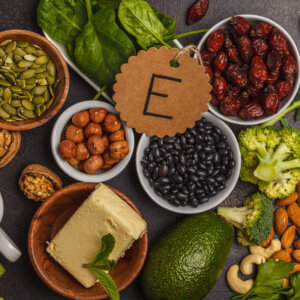
Vitamin E plays a vital role in maintaining the skin’s youthful elasticity, largely due to its involvement in collagen production. Collagen is the protein that gives skin its structure and firmness, and Vitamin E is essential for its synthesis. Foods rich in Vitamin E, such as spinach, sweet potatoes, and avocados, help the body combat UV-induced damage and support overall skin health.
Incorporating these foods into your diet can bolster your skin’s natural defense mechanisms against sun exposure. If you have concerns about potential skin damage due to sun exposure, it’s advisable to consult your GP. They can provide personalized recommendations and ensure your skin remains healthy and protected.


